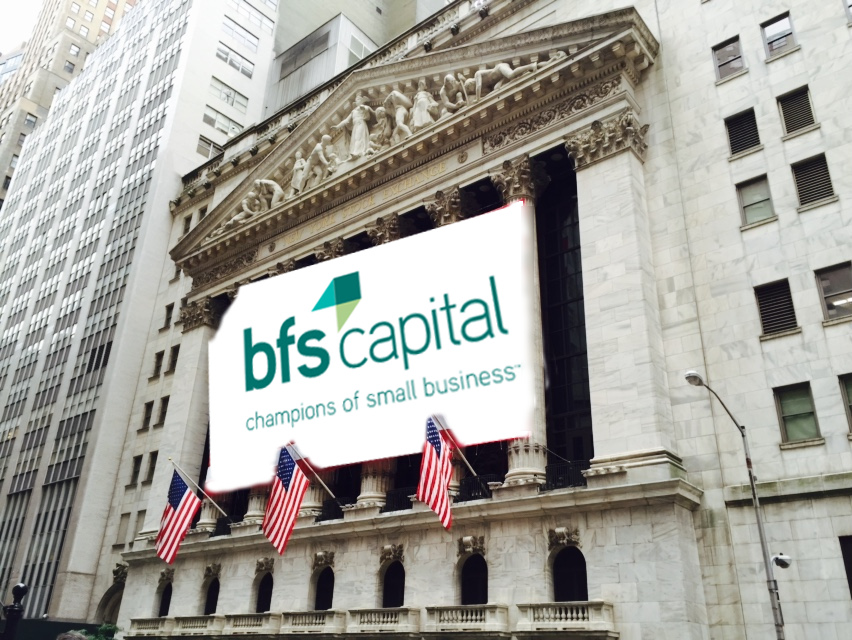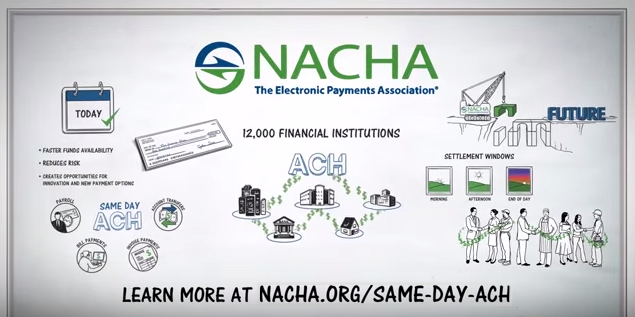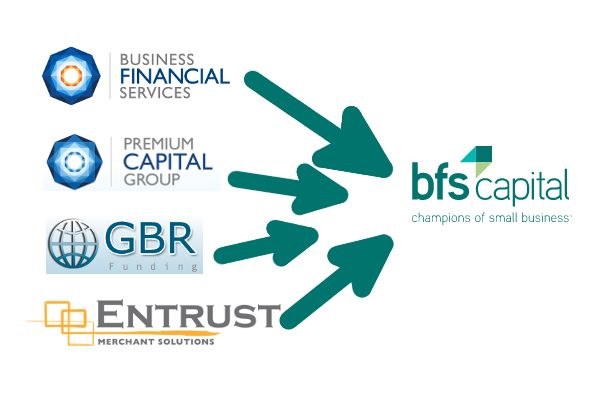deBanked Magazine Cover Teaser
September 30, 2015Can you guess who is on the cover of the September/October magazine issue of deBanked? Make sure you’re subscribed to the magazine to find out who it is!
SUBSCRIBE HERE

What The BFS Capital IPO Announcement Means for the Industry
September 29, 2015 Under the Jumpstart Our Business Startups (JOBS) Act, “an emerging growth company may confidentially submit to the Commission a draft registration statement for confidential, non-public review by the Commission staff prior to public filing.”
Under the Jumpstart Our Business Startups (JOBS) Act, “an emerging growth company may confidentially submit to the Commission a draft registration statement for confidential, non-public review by the Commission staff prior to public filing.”
According to the New Yorker, this process “allows companies that are thinking about going public to test the waters—they can gauge investor reaction, get feedback from the S.E.C. on their filings, and so on—before deciding if they want to go ahead with an I.P.O. If a company goes through that process publicly, and then decides to abandon the offering, its reputation gets damaged, even though it often makes sense for a company not to go public. Do it privately, and no one gets hurt.”
That’s what makes BFS Capital’s announcement (formerly Business Financial Services) that they had filed a confidential draft registration so bold. Companies normally choose this method if they don’t want anyone to know what they’re up to. But BFS is a different funder than the ones that came before them. OnDeck submitted their original draft registration confidentially for example and actually tried to keep it a secret.
“The initial public offering is expected to commence after the SEC completes its review process, subject to market and other conditions,” states BFS’s September 25th release.
The intent to go public follows a recent rebrand and the announcement that they had crossed $1 billion in funding since inception.
The most shocking part about a BFS IPO is that it’s not a CAN Capital IPO. While CAN is both older and larger, the industry has heard no word about a CAN Capital IPO since rumors leaked in Bloomberg almost an entire year ago. Back on November 20th, 2014, it was reported that the “New York-based company could be worth as much as $2 billion in the share sale.”
There was kind of a universal expectation that CAN Capital would go public immediately after OnDeck and Lending Club. Some insiders have pointed to OnDeck’s disappointing reception and performance as the reason CAN has delayed moving forward. OnDeck is currently trading at less than 50% of its IPO price and is facing a lawsuit from its own shareholders over it.
Others have said that CAN Capital isn’t waiting for anything because the company doesn’t actually need to go public. Long reported to be profitable and self-sustaining, opening themselves up to the volatility and fickleness of the public markets may not be worth the additional capital.
And still more have pondered if CAN Capital has what it takes to excite investors. Unlike some of the brand new tech startups that dominate the headlines, CAN has been operating since 1998, a time when only 42.1% of American households had computers and only 26.2% had Internet access. Of course the company has evolved and these days is as tech-equipped as their young brethren but a 17-year old lender may not be as easy to sell in a market obsessed with companies such as Uber, Snapchat and Airbnb.
BFS Capital was founded 13 years ago in 2002 so they’re not exactly new either. And their CEO, Marc Glazer, has led the company since its beginning.
BFS has been expanding however both here in the U.S. and abroad. In the U.K., they operate under the name Boost Capital. Meanwhile, independent financial brokerage firms such as Entrust Merchant Solutions are being acquired and rolled up into their organization.
What makes BFS different from OnDeck and Lending Club is that BFS also does merchant cash advances, not just loans. The only other publicly traded company that is significantly involved in merchant cash advances is Enova International and that’s only due to their recent acquisition of The Business Backer. The investor uncertainty surrounding lenders and marketplace platforms might not carry over to a company that got its start by purchasing future credit card processing receivables 13 years ago.
It would be safe to say that there’s a whole group of industry insiders who feel that Lending Club is a poor representative sample of the tech-enabled business financing space and that OnDeck’s unique model prejudices investors into thinking all lenders are like them. A BFS Capital IPO could in effect set the record straight for the industry and revive the IPO plans of their peers and competitors.
It might actually take a BFS IPO for us to finally see a CAN IPO, not that there aren’t plenty of other quality candidates right behind them.
What would a BFS Capital IPO mean for the industry? Perhaps a chance at redemption. There’s a lot of great things happening in this industry and investors ought to know about them.
OMG: Same Day ACH
September 25, 2015 Coming soon, the ability to ACH funds same-day will finally exist. The change will be a boon to tech-based lenders that have become famous (or infamous) for their ability to approve and issue loans quickly. No matter how fast the systems have become however, the ACH network has continued to slow the process down.
Coming soon, the ability to ACH funds same-day will finally exist. The change will be a boon to tech-based lenders that have become famous (or infamous) for their ability to approve and issue loans quickly. No matter how fast the systems have become however, the ACH network has continued to slow the process down.
Next-day funding has long made borrowers skeptical about the online lenders they apply to and many applicants become anxious when they hear that the funds will be in their account tomorrow rather than today, after the deal has been closed.
Speaking from my own experience, there was almost nothing worse than telling a merchant that the funds had gone out and would be in their account the next day because they would disregard the last part of that statement and check their bank accounts immediately and of course would not see those funds. They’d immediately reach back out to me or the underwriter and say that they had been deceived because no money was there. This scenario played out on at least half of all the deals I ever worked on and it was awful.
And I’d remind them, “It’s an ACH. It’s overnight. It should be there in the morning depending on your bank. If for whatever reason it isn’t, give me a call.”
Even after repeating myself, I’d often get an email later that day at 6 pm (bank closing time) to say that they were at the bank and the teller has just told them that they don’t see any incoming wires.
So many merchants just could not believe that a tech-based funding company could not make the money appear instantly in their account and every passing second caused them more anxiety and fear that they had been tricked.
Enter Same Day ACH, which is slated to launch in September 2016. According to the National Automated Clearing House Association (NACHA), who governs the ACH network, there will be two settlement times.
A morning submission deadline at 10:30 AM ET, with settlement occurring at 1:00 PM.
An afternoon submission deadline at 3:00 PM ET, with settlement occurring at 5:00 PM.
Virtually all types of ACH payments, including both credits and debits, would be eligible for same-day processing, according to their announcement.
The industry can’t get Same Day ACH fast enough!
And if you thought you were excited about ACHing, just watch the below video produced by NACHA about how awesome their network is.
Mr. Merchant: Help ME, Help YOU
September 25, 2015 As we close the 3rd Quarter in the Year Of The Broker, I thought that it might be imperative to blow off some steam. Industry forums, commentators and media reporters often rant on Brokers and Lenders by disclosing the inefficiencies of such parties. But I have yet to see (or hear) of anyone making a particular “rant” on the most crucial element in our industry, The Merchant. So if you would allow me the liberty to do so, I would like to take a couple of moments to provide these rants as many of you might have the same “pet peeves” with the merchants you are currently assisting (or trying to assist).
As we close the 3rd Quarter in the Year Of The Broker, I thought that it might be imperative to blow off some steam. Industry forums, commentators and media reporters often rant on Brokers and Lenders by disclosing the inefficiencies of such parties. But I have yet to see (or hear) of anyone making a particular “rant” on the most crucial element in our industry, The Merchant. So if you would allow me the liberty to do so, I would like to take a couple of moments to provide these rants as many of you might have the same “pet peeves” with the merchants you are currently assisting (or trying to assist).
Help ME, Help YOU
Mr. Merchant please Help ME, Help YOU. We all know the situation of why you returned my call, email, etc., you are in need of some working capital for your business because conventional sources are either not lending to you altogether, or they can’t work within the time frame that you need the capital in.
But I can’t help YOU, unless you first help ME in the process by being as efficient as you can in terms of your level of organization. You operate a $350k – upwards to $10 million business, why is it that you are so unorganized to the point where you can’t seemingly tell your head from your rear? Below are just “some” of things that Mr. Merchant, YOU need to work on.
Not Meeting Basic (Elementary) Deadlines
We would be at the very end of the closing process only for you to send over an expired driver’s license because you never updated it, or your SOS filing is inactive because you didn’t pay the $50 annual filing fee, or you are late filing your taxes and didn’t put in an extension. These are basic (elementary) deadlines Mr. Merchant, how is it that you are not staying on top of them?
Bank Statements Are Out Of Order
We need your bank statements to analyze your sales, cashflow, balances, etc. to determine approval terms/conditions. Why is it that your fax has pages that are totally out of order, pages missing, etc.? Why is it that many times you don’t even know where your bank statements are and we have to wait 3 or 5 days for you to “find” them? We are in the Year of 2015 Mr. Merchant, have ever heard of a tool called “Online Banking”? You can easily log in and forward your statements over in PDF format by email within 5 minutes.
Can’t Find Financials
So Mr. Merchant, you are requesting $200,000 plus from my platform and the Underwriter needs to take a look at last year’s Tax Return, Prior Year Financials and YTD Financials. But similar to your Bank Statements, you have no clue where these documents are. Mr. Merchant, how can you run a $5 million plus business, but not know where your Company’s Financials are?
 Bad Credit
Bad Credit
The average FICO score in the country is about 693, yet Mr. Merchant, your FICO score is under 500, or 520, or 575. As an entrepreneur, you know that you are supposed to keep your credit clean as much as possible, yet you routinely tell me that you haven’t pulled your credit in a while and you don’t know what’s on your report. There are free sources like Credit Karma, Credit Sesame and your Credit Card Issuer to get your credit score/reporting ranges for free, yet you don’t use them?
Running The Business On Overdraft Protection
Mr. Merchant, my financing is based on a daily or weekly fixed payment, how can I approve you when you have no money in your business bank account and you run the business on overdraft protection?
Not Disclosing Liens, Bankruptcies, Or Landlord/Mortgage Issues
During my pre-qualification, I asked you if you had any prior liens or bankruptcies, I also asked if you were behind on your landlord or mortgage payments. You flat out said no. Did you not think we were going to find late in the 11TH Hour of the closing process, that you have a $150,000 tax lien without a payment plan on it? Which means we just did all of this work, for nothing?
Excessive Cash Advance Stacking
Mr. Merchant, tell me how does this make sense? Why would you take out excessive advances on top of one another without calculating the fact that you would be paying 25% to sometimes 40% of your gross monthly revenue in cash advance payments? Then after doing so, you come to me complaining about why no one will help you get from under these “evil” Cash Advance companies?
Sending Fake Statements and Financials
And this is the ultimate pet peeve! So Mr. Merchant, you are in such desperate need of a high priced Cash Advance, that you are willing to go to prison for it by sending over fake bank statements and financials? Why on Earth would you risk your freedom in such a manner?
Final Word
As Brokers and Lenders, we are always hammered in the media about our inefficiencies, but nobody says anything about the flat out (sorry to say) stupid behavior of merchants that we serve.
Mr. Merchant, please help ME, help YOU, or should I say help US as an industry help YOU, by just doing the basic (elementary) of things that will assist us in securing the best alternative financing deals in the marketplace, all designed to help grow, develop and sustain your business.
Qwave Fails to Acquire IOU Financial, But Becomes Major Shareholder
September 24, 2015 After some tense fanfare, Qwave Capital failed to acquire a controlling stake in IOU Financial but has succeeded in becoming a major shareholder. In a published statement, Qwave manager Serguei Kouzmine said, “As a significant shareholder in IOU, I plan to work constructively with the Board of Directors to ensure the company is focused on growing profitably and creating value for all IOU shareholders over the long term. I appreciate the support my offer has received and look forward to helping IOU realize its potential.”
After some tense fanfare, Qwave Capital failed to acquire a controlling stake in IOU Financial but has succeeded in becoming a major shareholder. In a published statement, Qwave manager Serguei Kouzmine said, “As a significant shareholder in IOU, I plan to work constructively with the Board of Directors to ensure the company is focused on growing profitably and creating value for all IOU shareholders over the long term. I appreciate the support my offer has received and look forward to helping IOU realize its potential.”
Nearly 15% of the company’s issued and outstanding shares were acquired under the offer.
Qwave stands to materially benefit in the long run especially since the timing coincides with IOU Financial hitting historic milestones.
“The Company’s loan originations for the months of July and August, totaled US$31.3 million, representing a year over year increase of 150% in comparison to the same period in 2014,” IOU announced.
They also funded more than $100 million in 2014 and if that volume is a metric that anyone is measuring then IOU is substantially undervalued.
If the takeover attempt accomplished anything, it may have stirred IOU from a slumber at just the right moment in alternative lending history. They’ll be a lender worth keeping an eye on.
5 Signs Your Merchant Needs to Go To a Collection Agency
September 23, 20151) Merchant avoiding phone calls, emails being returned and no live voice when a call is made

2) ACH accounts being closed with promises to open another that never happens

3) Mail being returned and when you speak to landlord they say “they left in the middle of the night”

4) Claims of Bankruptcy filings but does not provide attorney information

5) Merchant shows signs of stacking
These are just a few red flags that indicate an agency specializing in your industry needs to get involved immediately.
BFS Capital Joins the Ranks of Consolidated Powerhouses in Alternative Lending
September 21, 2015 Coral Springs, FL-based Business Financial Services has joined the ranks of consolidated powerhouses with the announcement of their rebrand to BFS Capital. As part of the move, the company has unified its North American business affiliates.
Coral Springs, FL-based Business Financial Services has joined the ranks of consolidated powerhouses with the announcement of their rebrand to BFS Capital. As part of the move, the company has unified its North American business affiliates.
Entrust Merchant Solutions, GBR Funding and Premium Capital Group will now also use the BFS Capital name. Entrust, who was acquired by BFS Capital on August 26th, has become the firm’s direct sales division. Ilya Fridman, Entrust’s former CEO, is now a Senior Vice President of BFS Capital and will oversee sales.
Boost Capital, their UK arm, is not changing its name.
BFS Capital is the latest small business funding provider to consolidate their affiliates and change their name.
Already this year, Merchant and Cash and Capital became Bizfi, AmeriMerchant became Capify, and RetailCapital became Credibly. Industry insiders have noticed one thing in common about all these changes, that they’re memorable.
“I think people are thinking about going public and want names that are easily identifiable more than wanting to sound techy,” said John Celifarco, Sales Manager at NY-based Sure Payment Solutions. “Maybe a little of both.”
When deBanked previously asked Rory Marks, a Managing Partner of NY-based Central Diligence Group, about the name recognition-value of certain funders in the industry including Business Financial Services, he said “when choosing to use words that are ubiquitous in the industry, it could be difficult to distinguish yourself. Ultimately this could potentially impact the customer’s ability to fully understand the nature of your business.”
Business financial services could be confused as a genre or a category, a few insiders commented, instead of a company name.
The BFS Capital brand should remedy any confusion, although Justin Benton, Executive Loan Producer of Lenders Marketing shared, “a simple name that conveys what you do has value, not only in the eyes of your potential clients, but in the eyes of search engines like Google. At the end of the day, if you do your job well and the client is pleased with the loan product and service you provide, your name will be positively associated as a trusted resource.”
Business Financial Services has long been referred to as BFS by industry insiders so unlike other funders that completely transformed during their rebrand, BFS Capital may retain more of their previous name’s goodwill.

“Bringing all your companies under one umbrella can bring each company’s unique strengths together in one collective effort, rowing towards one common destination,” said Benton.
BFS Capital has been a hot news item this summer. In July, they surpassed $1 billion in lifetime funding.
IOU Financial is Playing Offense in 11th Hour
September 19, 2015 Perhaps jolted awake by corporate raiders attempting a hostile takeover, IOU Financial is making some bold moves and issuing some optimistic news. Yesterday on September 18th, IOU announced that they took home a profit for the months of July and August and in addition signed a letter of intent for a credit facility of up to $50 million. They also said that the board has received an offer to proceed with a private placement of up to $10 million in principal amount of convertible debentures, with committed subscriptions in excess of $7 million.
Perhaps jolted awake by corporate raiders attempting a hostile takeover, IOU Financial is making some bold moves and issuing some optimistic news. Yesterday on September 18th, IOU announced that they took home a profit for the months of July and August and in addition signed a letter of intent for a credit facility of up to $50 million. They also said that the board has received an offer to proceed with a private placement of up to $10 million in principal amount of convertible debentures, with committed subscriptions in excess of $7 million.
It should be noted that neither is guaranteed and a letter of intent is not a closed deal. The lender’s loan originations for the months of July and August, totaled US$31.3 million, representing a year over year increase of 150% in comparison to the same period in 2014.
IOU is fighting to stave off Qwave Capital, a VC firm that recently made a formal bid to buy a controlling stake for $17 Million CAD. IOU’s board has adamantly rejected the offer and has been urging share holders to turn it down.
The offer expires at 5pm EST on Tuesday, September 22nd.
“We continue to believe Qwave’s Offer provides IOU shareholders with excellent value, liquidity and opportunity,” said Serguei Kouzmine, a manager of Qwave Capital in a release dated September 17th. “The IOU board has failed to deliver an alternative offer, has repeatedly refused to act in the best interests of all shareholders, and has approved related-party transactions that put insiders first. We think IOU shareholders deserve better, and we’re asking them to tender their shares and partner with us to help IOU realize its full potential.”






























